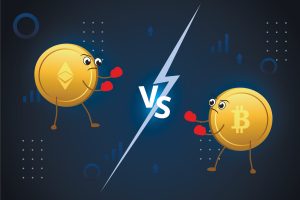Navigating the crypto sea
The continuous popularity of cryptocurrencies made them and the cryptomarket in general at least as prominent as the traditional Wall Street economy. Unlike the latter, crypto trading goes 24/7, without breaks for meal and sleep. To help crypto traders and investors diverse multi-platform software has emerged. Multiple crypto trading programs and apps now feature automated or artificial intelligence-based assistance, such as tesler.
Truth in between
For skeptics the word crypto is a stop word. For others it’s an opportunity. The popularity of crypto may suggest there are far more crypto optimists than skeptics. Still, as it frequently happens, the truth lies somewhere in between. For starters, let’s outline the legal regulatory context. Cryptocurrency came under scrutiny particularly of EU and US regulatory bodies. However, neither the EU nor the US decided to ban them. In fact, the EU’s Basel Committee on Banking Supervision (BCBS) in its guideline on bank crypto assets includes some crypto assets that meet certain hedging recognition criteria. In such cases a certain degree of hedging is permitted. In 2021, El Salvador became the first country to adopt bitcoin as a legal tender, de facto making it the second national currency there, alongside the US dollar.
The perks
The primary perks of cryptocurrencies have been widely advertised and are known to many laypersons. An article in Forbes listed at least nine advantages of cryptocurrencies, although some of them were disputed by other sources. The very word “crypto” refers to cryptographic methods and encryption algorithms that provide security (in technical parlance those are called hashing functions, elliptical curve encryption and public-private key pairs). Another well-known feature is the decentralized nature of cryptocurrency. While “decentralized” may sound dubious, the decentralized nature of cryptocurrencies makes transactions faster.
Another commonly cited perk is protection from inflation. Limited supply of 21 million, the demand is projected to increase and so will the value – this is said to prevent inflation in the long run. Of these 21 million bitcoins, more than 19 million have already been mined so far. Some sources, however, challenged crypto’s ability to act as a reliable inflation hedge.
A major perk of any crypto is the ability to generate quick and large profits due to high volatility that causes rapid increases in crypto prices within days, much more dramatic than those of, say, US dollar. But the same high volatility is responsible for equally dramatic drops in prices which is the main source of skepticism about crypto. Yet, this is just the flip side for crypto enthusiasts – it could be argued that an aptitude, proper training and sense of business can jointly outweigh the risks of money loss.
One of the undisputed advantages of cryptocurrency is the transaction speed. Crypto transactions are completed within minutes, while most traditional bank transactions require one to five days to process.
After the last bitcoin mined
Various sources asked a logical question: if the bitcoin supply is limited, what happens when the last bitcoin is mined? However, this paradigm is not unique and equally applies to the classical financial behemoth – gold whose supplies will also eventually end. Currently Bitcoin miners get transaction fees on top of a block mining reward, which makes it popular and secure. But who knows what the future holds for the year 2140 and what changes will occur then.






